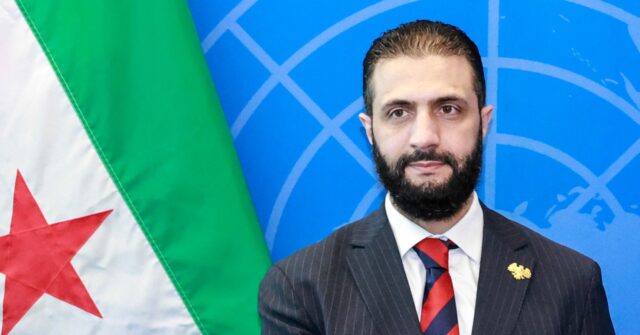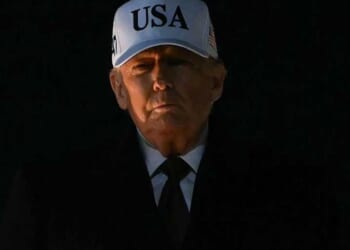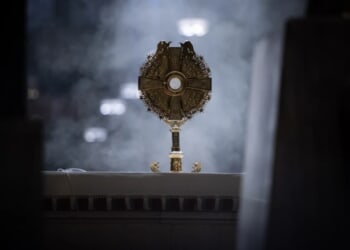Syrian Foreign Minister Asaad al-Shaibani announced in a speech on Sunday that the country’s president, former jihadist terror chief Ahmed al-Sharaa, will visit the White House in early November.
Sharaa became president after his terrorist organization, the al-Qaeda offshoot Hayat Tahrir al-Sham (HTS), toppled the Iran- and Russia-linked regime of former dictator Bashar Assad, who fled to Moscow in December. Assad’s family ruled the country for over half a century and Assad himself presided over a civil war featuring over 10 warring interests that lasted over a decade. HTS, following its victory, has in effect been disbanded, as its leaders are now the government of Syria.
Following the defeat of the Assad regime, Sharaa shed his jihadi nom de guerre “Abu Mohammed al-Jolani,” began wearing Western-style suits, and has focused almost exclusively on attracting foreign investment for post-war reconstruction. To that end, he has offered positive statements towards the United States and President Donald Trump in particular, first meeting the American head of state in May. Trump described Sharaa on that occasion as a “young, attractive guy” who had “a real shot” at bringing the nation out of years of destitution.
While emphasizing the need for international financial help, Sharaa is leading an Islamist government and has denied that Islamism is a threat to the nation’s Christians, Alawite Shias, Druze, or other religious groups. Damascus adopted an Islamist constitution in March and has imposed some sharia, or Islamic law, but rejected a fundamentalist adaptation in the manner of the Taliban in Afghanistan. In June, for example, Sharaa’s government mandated that women must wear “burqinis” at the beach, but also banned men from taking off their shirts in the same venues.
Shaibani announced the White House visit during a speech at the Manana Dialogue Forum in Bahrain.
“President al-Sharaa is scheduled to visit the White House this month, where he will hold discussions on Syria’s post-war reconstruction,” he said, according to the state-run Syrian Arab News Agency (SANA).
“Of course, this is a historic visit. It is the first visit by a Syrian president to the White House in more than 80 years,” he noted. “There will be many issues on the table, starting with the lifting of sanctions and opening of a new chapter between the United States and Syria. We want to establish a very strong partnership between the two countries.”
Shaibani insisted that any sanctions remaining on Syria imposed in response to Assad’s litany of human rights abuses had “no justification,” as no one running the government when they were imposed remains in authority.
The Middle East news organization Al Jazeera, citing the Washington, DC, outlet Axios, also reported that U.S. Special Envoy to Syria Tom Barrack had separately claimed that part of Sharaa’s visit to America would include joining the U.S. alliance against the Islamic State (ISIS). While both HTS and ISIS are al-Qaeda offshoots and Sunni jihadist terror organizations, they have no active involvement with each other and Sharaa has taken action to stop ISIS attacks since seizing power.
The Al Jazeera report did not specify which coalition against ISIS Sharaa may join, though its language indicates it may be the Global Center for Combating Extremist Ideology, and organization Trump helped launch in Saudi Arabia during his first term in 2017.
The government of Saudi Arabia has been one of Sharaa’s most active champions since the fall of Assad, facilitating the HTS chief’s meeting with Trump in May.
Trump expressed leaving that meeting with a positive impression of Sharaa.
“Young, attractive guy. Tough guy. Strong past. Very strong past. Fighter,” the president said at the time. “He’s got a real shot at holding it together. He’s a real leader. He led a charge and he’s pretty amazing.”
Trump added that he believed there was potential now for Syria to join the Abraham Accords, his initiative to normalize relations between Muslim countries and Israel, but “they have to get themselves straightened up. I told him, ‘I hope you’re going to join when it’s straightened out.’”
“He said, ‘Yes.’ But they have a lot of work to do,” Trump added.
The American president also announced he would lift Assad-era sanctions on Syria.
“I felt very strongly that this would give them a chance. It’s not going to be easy anyway, so gives them a good strong chance. And, it was my honor to do so,” he added.
Sharaa was quick to express interest in cooperating with Trump following the latter’s return to the White House. In January, Sharaa issued congratulations to Trump on his inauguration, declaring, “we are confident that he is the leader to bring peace to the Middle East and restore stability to the region.”
With American and Saudi support, Sharaa revealed last week at a conference in Riyadh that his government had attracted $28 billion in foreign investment, presumably for post-war reconstruction, in six months.
“What the world stands to gain from Syria’s stability is immense, as it occupies a strategic position in the region,” Sharaa claimed. “Historically, it has been the gateway to the East and a key part of the famed Silk Road. Syria possesses diverse resources and a multifaceted economy that does not rely on a single sector.”
“We will rebuild everything that was destroyed,” he promised, “and my greatest bet is on the Syrian people.”

















